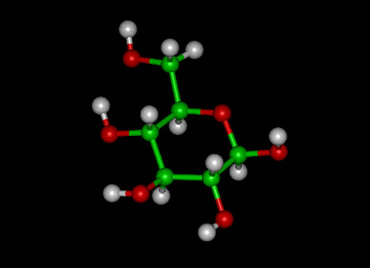So why do we prefer to use glucose over fat (lipids to give them their technical name), when they can release so much more energy?
It's all about convenience.
The process of converting glucose to usable energy is much simpler and quicker than turning lipid in to usable energy. When your ancestors needed to get away from something that wanted to eat them, they needed the energy instantly. So we decided way back in time that we'd use fats or lipids as a way of storing energy, and carbohydrates (glucose) as the fuel for immediate use. So we mainly store excess carbohydrates (sugars) as fat (lipid), and for most of human history it's been an advantage to accumulate and store excess more efficiently.
We do store some carbohydrate, as glycogen, in the liver. So if we need more quick energy, we can get at it quickly.
So how does this relate to the quick loss of weight in the first few days of a new diet?
Each gram of stored glycogen has 2 grams of water associated with it (for reasons of deep biochemistry).
The glucose stored as glycogen is released when our blood sugars start to drop. Our blood glucose level are usually kept in a narrow range by our body. Usually between around 5 and 7 mmol/l. As blood glucose levels start to drop the body starts breaking down glycogen to bring this level back up again. When you breakdown glycogen the water used to store it is released too. The water released then ends up being peed out quickly after that.
So when you start reducing your food intake, your body recognises that blood glucose isn't where it should be and so starts using glycogen.
What happens when the glycogen runs out?
Most people only have between 100 and 120g of glycogen stored, and that runs out pretty quickly. If you've ever worked or exercised so hard that you've just run out of energy or "hit the wall" you'll know what this feels like. Luckily fats come to the rescue after a little while and you get your second wind and can get up and carry on.
As you can see if we could manage a smoother change between burning carbs and fats it would make losing weight a bit easier.
Fortunately we can.
That's coming up in a later post.
Well actually this one ended up being the next post:




